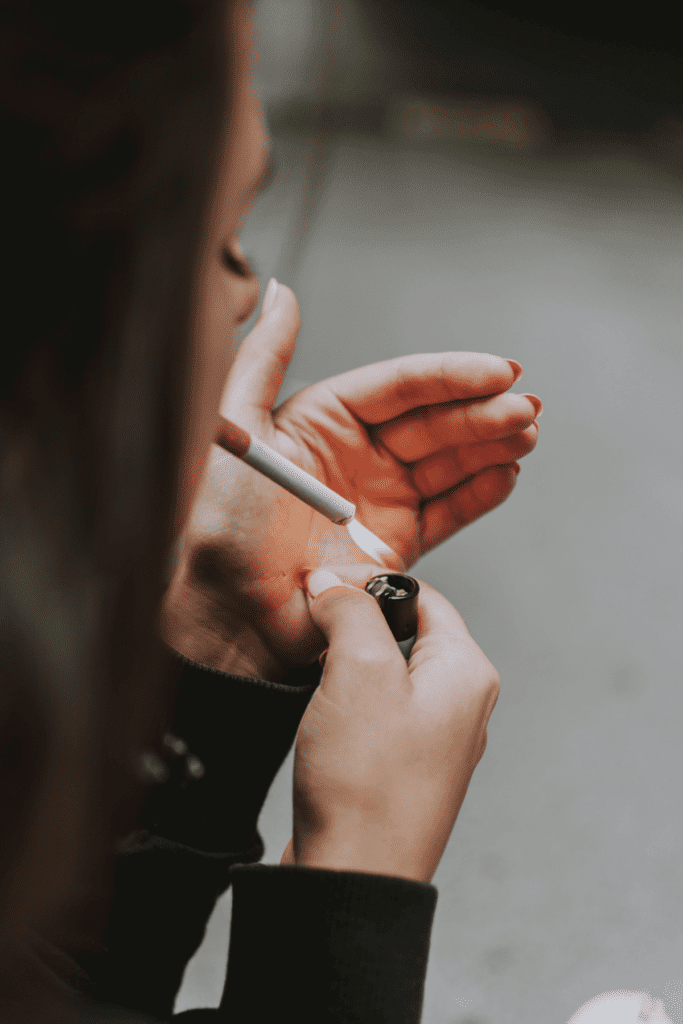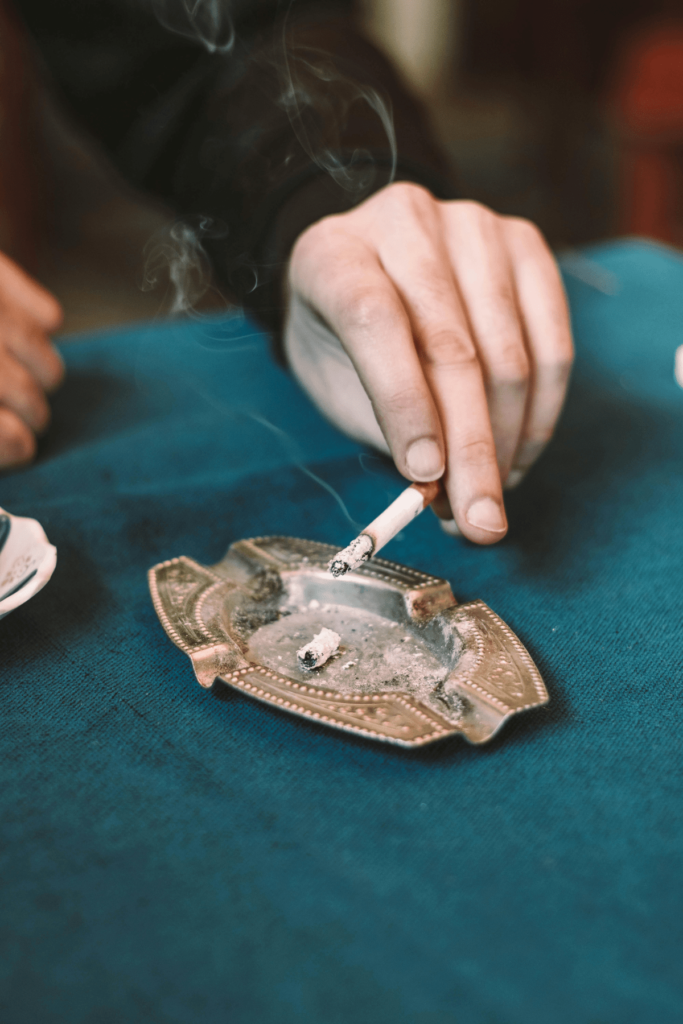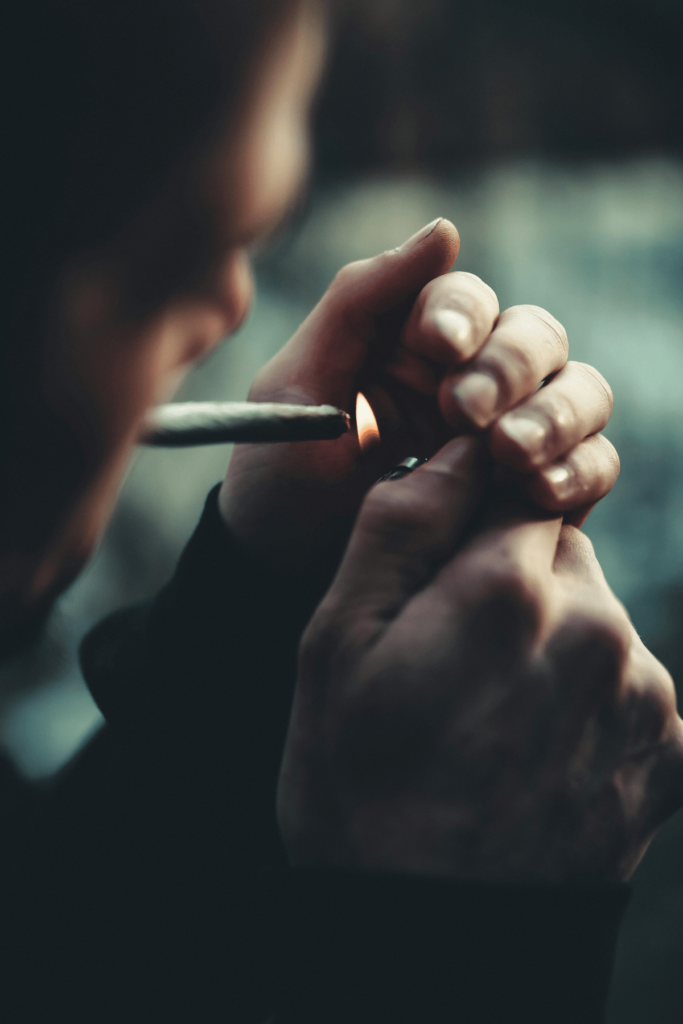Last updated on December 18th, 2024 at 03:25 am
- 1. The Nature of Insomnia
- 1.1 Types of Insomnia
- 1.2 Prevalence and Impact
- 2. The Addiction Landscape
- 2.1 Common Substances of Abuse
- 2.2 Prevalence of Substance Use Disorders
- 3. The Bidirectional Relationship Between Insomnia and Addiction
- 3.1 Insomnia as a Risk Factor for Addiction
- 3.2 Addiction as a Contributor to Insomnia
- 4. Neurobiological Mechanisms Linking Insomnia and Addiction
- 4.1 Neurotransmitter Systems
- 4.2 Stress Response Systems
- 5. Specific Substance Effects on Sleep
- 5.1 Alcohol
- 5.2 Stimulants
- 5.3 Opioids
- 5.4 Cannabis
- 6. Insomnia in Addiction Recovery
- 6.1 Prevalence and Duration
- 6.2 Factors Contributing to Insomnia in Recovery
- 7. Treatment Approaches for Co-occurring Insomnia and Addiction
- 7.1 Cognitive Behavioral Therapy for Insomnia (CBT-I)
- 7.2 Pharmacological Interventions
- 7.3 Complementary and Alternative Approaches
- 8. Prevention Strategies and Public Health Implications
- 8.1 Education and Awareness
- 8.2 Policy and Regulation
- 9. Future Directions in Research and Treatment
- 9.1 Personalized Medicine Approaches
- 9.2 Technology-Assisted Interventions
- 9.3 Novel Pharmacological Targets
- 10. Insomnia Triggers and Substance Misuse
- 11. Psychiatric Disorders and Insomnia
- 12. Effects of Chronic Pain and Comorbid Insomnia
- 13. Sleep Disorders Among Methadone Maintained Patients
- 14. Sleep Architecture and Substance Effects
- 15. Dual Diagnosis Insomnia
- 16. Impact of Sleep Disorders on Recovery Journey
- 17. Obstructive Sleep Apnea and Addictive Behavior
- 18. Behavioral Addictions and Insomnia
- 19. Medical Condition Contributions to Insomnia
- 20. Recreational Drugs and Sleep Deprivation
- 21. Clinical Evaluation and Sleep Medicine Approaches
- 22. Effects of Chronic Substance Misuse on Sleep
- 23. Substance Use and Dual Diagnosis Challenges
- 24. Substance Use Impact on REM Sleep
- 25. Impact of Recreational Drugs on Sleep Patterns
- 26. Chronic Cocaine Use and Insomnia Symptoms
- 27. Sleep Difficulties in Addiction Recovery Programs
- 28. Hypnotic-Dependent Insomnia in Addiction
- 29. Holistic Addiction Treatment and Sleep Wellness
- Conclusion
- Frequently Asked Questions
- What Are the Causes of Acute Insomnia Linked to Alcohol Use Disorder?
- How Does Cognitive-Behavioral Therapy Help Treat Insomnia in Patients with Substance Addictions?
- How Does Cannabis Use Affect Sleep Quality in Patients With Insomnia Disorder?
- What Are the Long-Term Effects of Opioids on Sleep Architecture?
- How Does Obstructive Sleep Apnea Relate to Alcohol-Dependent Patients?
- How Can Treatment for Insomnia Reduce Relapse Risk in Cocaine Use Disorder?
- What Are the Common Complaints of Alcoholic Patients Regarding Sleep Quality?
- How Does Chronic Pain Affect Sleep Efficiency in Patients with Substance Addictions?
- What Is the Role of Recreational Drugs in Sleep-Onset Insomnia?
- How Does Insomnia Serve as a Risk Factor for Relapse in Addiction Recovery?
- How Do Environmental Factors Contribute to Insomnia in Patients Undergoing Addiction Treatment?
- How Does Central Sleep Apnea Manifest in Methadone Maintenance Patients?
- How Can Cognitive Behavioral Therapy Improve Sleep Disorders Among Methadone Maintained Individuals?
- How Does Chronic Insomnia Affect Mental Health in Patients with Alcohol Dependence?
- What Is the Impact of Cannabis Withdrawal Syndrome on Sleep Efficiency?
- How Does Comorbid Insomnia Affect Patients with Post-Traumatic Stress Disorder?
- How Does the Use of Stimulants Like Cocaine Affect Sleep Patterns During Recovery?
- What Are the Symptoms of Withdrawal Insomnia in Alcohol-Dependent Individuals?
- How Does Cannabis Use Disorder Affect Slow-Wave Sleep?
- How Do Psychoactive Substances Influence Circadian Rhythm Sleep Disorders?
Insomnia, a pervasive sleep disorder affecting millions worldwide, has become increasingly intertwined with substance abuse and addiction in recent years. This complex relationship between sleep disturbances and substance use disorders (SUDs) presents significant challenges for individuals, healthcare providers, and society at large.
Understanding the intricate connections between insomnia and addiction is crucial for developing effective prevention strategies, treatment approaches, and support systems.
1. The Nature of Insomnia
Insomnia is characterized by persistent difficulty falling asleep, staying asleep, or both, despite adequate opportunities for sleep. This condition can have profound effects on an individual’s quality of life, impacting physical health, mental well-being, and daily functioning.
1.1 Types of Insomnia
Insomnia is typically categorized into two main types:
- Acute Insomnia: Short-term sleep disturbances lasting from a few days to a few weeks, often triggered by specific life events or circumstances.
- Chronic Insomnia: Long-term sleep difficulties occurring at least three nights per week for three months or more, often associated with underlying medical or psychiatric conditions.
1.2 Prevalence and Impact
Recent studies indicate that approximately 30-35% of adults experience brief symptoms of insomnia, while 10-15% suffer from chronic insomnia disorder. The economic burden of insomnia is substantial, with estimates suggesting annual costs exceeding $100 billion in the United States alone, considering factors such as reduced productivity, increased healthcare utilization, and accidents related to daytime fatigue.
2. The Addiction Landscape
Addiction, a chronic and complex brain disorder characterized by compulsive drug-seeking and use despite harmful consequences, affects millions of individuals globally. Understanding the various forms of addiction and their prevalence is crucial for comprehending the relationship between substance abuse and sleep disorders.
2.1 Common Substances of Abuse
Substances frequently associated with addiction include:
- Alcohol
- Opioids (e.g., heroin, prescription painkillers)
- Stimulants (e.g., cocaine, methamphetamine)
- Cannabis
- Benzodiazepines
- Nicotine
2.2 Prevalence of Substance Use Disorders
According to recent data, approximately 20.4 million Americans aged 12 or older had a substance use disorder in 2019. This includes 14.5 million people with an alcohol use disorder and 8.3 million with an illicit drug use disorder. The overlap between these disorders and sleep disturbances is significant and warrants closer examination.


3. The Bidirectional Relationship Between Insomnia and Addiction
The connection between insomnia and addiction is complex and bidirectional, with each condition potentially exacerbating the other. This intricate relationship creates a challenging cycle that can be difficult to break without professional intervention.
3.1 Insomnia as a Risk Factor for Addiction
Chronic sleep disturbances can increase vulnerability to substance abuse and addiction through various mechanisms:
- Self-medication: Individuals may turn to alcohol, drugs, or prescription medications in an attempt to alleviate insomnia symptoms.
- Altered brain chemistry: Sleep deprivation can disrupt neurotransmitter systems, potentially increasing susceptibility to addictive behaviors.
- Impaired decision-making: Lack of sleep can affect cognitive function and impulse control, potentially leading to risky behaviors and substance use.
3.2 Addiction as a Contributor to Insomnia
Substance use and addiction can significantly impact sleep patterns and quality:
- Direct effects on sleep architecture: Many substances alter sleep stages, disrupting the natural sleep-wake cycle.
- Withdrawal-related sleep disturbances: As individuals attempt to quit or reduce substance use, withdrawal symptoms often include insomnia.
- Circadian rhythm disruption: Substance use can interfere with the body’s internal clock, leading to irregular sleep patterns.
4. Neurobiological Mechanisms Linking Insomnia and Addiction
Understanding the shared neurobiological pathways between insomnia and addiction provides insight into their complex relationship and potential treatment approaches.
4.1 Neurotransmitter Systems
Several key neurotransmitter systems are implicated in both sleep regulation and addiction processes:
- Dopamine: Involved in reward and motivation, dopamine plays a crucial role in addiction and can also influence sleep-wake cycles.
- Serotonin: This neurotransmitter regulates mood and sleep patterns and is often targeted in treatments for both insomnia and addiction.
- GABA (Gamma-Aminobutyric Acid): The primary inhibitory neurotransmitter in the brain, GABA is essential for sleep promotion and is affected by various substances of abuse.


4.2 Stress Response Systems
Chronic insomnia and addiction both involve dysregulation of the body’s stress response systems, including the hypothalamic-pituitary-adrenal (HPA) axis. This shared pathway may contribute to the co-occurrence of these conditions and their mutual exacerbation.
5. Specific Substance Effects on Sleep
Different substances of abuse have unique effects on sleep patterns and quality, contributing to the complex relationship between insomnia and addiction.
5.1 Alcohol
While alcohol may initially promote sleep onset, it significantly disrupts sleep architecture:
- Reduces REM sleep and deep sleep stages
- Increases sleep fragmentation and nighttime awakenings
- Can lead to rebound insomnia during withdrawal
5.2 Stimulants
Stimulant drugs such as cocaine and methamphetamine have profound effects on sleep:
- Increase difficulty falling asleep and staying asleep
- Suppress REM sleep
- Can lead to extended periods of wakefulness followed by “crash” periods
5.3 Opioids
Opioid use and withdrawal both significantly impact sleep:
- Acute use can increase drowsiness but disrupt normal sleep cycles
- Chronic use often leads to insomnia and sleep-disordered breathing
- Withdrawal is associated with severe insomnia and sleep disturbances
5.4 Cannabis
The effects of cannabis on sleep are complex and dose-dependent:
- May initially improve sleep onset and increase deep sleep
- Chronic use can lead to tolerance and withdrawal-related sleep disturbances
- Can suppress REM sleep and alter overall sleep architecture


6. Insomnia in Addiction Recovery
Sleep disturbances are a common challenge during addiction recovery, often persisting long after acute withdrawal symptoms have subsided. This phenomenon, known as post-acute withdrawal syndrome (PAWS), can significantly impact recovery outcomes and quality of life.
6.1 Prevalence and Duration
Studies indicate that up to 80% of individuals in early recovery experience sleep disturbances, with many reporting persistent insomnia for months or even years after achieving sobriety. This prolonged sleep disruption can increase the risk of relapse and impede overall recovery progress.
6.2 Factors Contributing to Insomnia in Recovery
Several factors contribute to the high prevalence of insomnia during addiction recovery:
- Neurochemical imbalances resulting from prolonged substance use
- Psychological factors such as anxiety, depression, and trauma
- Environmental and lifestyle changes associated with recovery
- Medications used in addiction treatment that may affect sleep
7. Treatment Approaches for Co-occurring Insomnia and Addiction
Addressing co-occurring insomnia and addiction requires a comprehensive, integrated approach that targets both conditions simultaneously. Effective treatment strategies often combine pharmacological interventions with behavioral and lifestyle modifications.
7.1 Cognitive Behavioral Therapy for Insomnia (CBT-I)
CBT-I is considered the gold standard for treating chronic insomnia and has shown promise in addressing sleep disturbances in individuals with SUDs. This approach includes:
- Sleep hygiene education
- Stimulus control therapy
- Sleep restriction therapy
- Relaxation techniques
- Cognitive restructuring
7.2 Pharmacological Interventions
Medication management for co-occurring insomnia and addiction requires careful consideration of potential interactions and abuse liability. Options may include:
- Non-benzodiazepine sleep aids (e.g., zolpidem, eszopiclone) used cautiously and short-term
- Sedating antidepressants (e.g., trazodone, mirtazapine)
- Melatonin receptor agonists
- Medications targeting specific addiction-related sleep disturbances (e.g., gabapentin for alcohol-related insomnia)
7.3 Complementary and Alternative Approaches
Integrating complementary therapies can enhance overall treatment outcomes:
- Mindfulness meditation
- Acupuncture
- Yoga and other mind-body practices
- Light therapy for circadian rhythm regulation


8. Prevention Strategies and Public Health Implications
Addressing the interconnected issues of insomnia and addiction requires a multifaceted approach that encompasses prevention, early intervention, and public health initiatives.
8.1 Education and Awareness
Increasing public awareness about the relationship between sleep disorders and substance abuse is crucial. This includes:
- Educating healthcare providers about screening for co-occurring conditions
- Promoting sleep health as part of substance abuse prevention programs
- Raising awareness about the risks of self-medicating sleep problems with substances
8.2 Policy and Regulation
Implementing evidence-based policies can help address the intersection of insomnia and addiction:
- Improving access to behavioral sleep medicine services
- Regulating the marketing and distribution of sleep aids and potentially addictive substances
- Incorporating sleep health into workplace wellness programs and policies
9. Future Directions in Research and Treatment
As our understanding of the relationship between insomnia and addiction continues to evolve, several areas warrant further investigation and development:
9.1 Personalized Medicine Approaches
Advancing research into genetic and neurobiological markers may lead to more tailored treatment strategies for individuals with co-occurring insomnia and addiction.
9.2 Technology-Assisted Interventions
Exploring the potential of digital health technologies, such as smartphone apps and wearable devices, in monitoring sleep patterns and supporting recovery efforts.
9.3 Novel Pharmacological Targets
Investigating new medications that address both sleep disturbances and addiction-related symptoms without the risk of dependence or abuse.
10. Insomnia Triggers and Substance Misuse
Insomnia triggers can often stem from substance misuse, contributing to a vicious cycle of addiction. Alcohol use disorder and recreational drugs are common contributors to sleep difficulty.
In particular, alcohol dependence is known to lead to withdrawal insomnia, characterized by disturbed sleep patterns during abstinence. This sleep disturbance can be a risk factor for relapse, making it critical to address insomnia symptoms in addicts to prevent re-engagement in substance misuse.
11. Psychiatric Disorders and Insomnia
Insomnia and psychiatric disorders are closely linked. Mental disorders such as anxiety, depression, and bipolar disorder contribute to the development of insomnia symptoms and aggravate existing insomnia disorder.
Patients with post-traumatic stress disorder (PTSD) also exhibit persistent disordered sleep and poor sleep quality. Addressing these psychiatric disorders with treatment approaches like cognitive-behavioral therapy (CBT) is critical to improving overall sleep quality.


12. Effects of Chronic Pain and Comorbid Insomnia
Individuals dealing with chronic pain frequently experience comorbid insomnia. The pain can result in disturbed sleep, contributing to a decreased quality of sleep and increased sleep latencies.
Studies show that chronic pain patients often have reduced slow-wave sleep time, leading to impaired sleep and further exacerbating insomnia symptoms. Effective pain management and treatment of insomnia are essential in these patients to enhance sleep efficiency.
13. Sleep Disorders Among Methadone Maintained Patients
Methadone maintenance patients frequently experience sleep-disordered breathing, sleep difficulty, and other forms of common sleep disorder due to the impact of opioids on sleep architecture. Central sleep apnea and slow-wave sleep suppression are typical sleep disturbances among methadone maintained individuals.
These disturbances result in poor sleep quality and significant daytime functioning impairments. Integrating cognitive-behavioral therapy alongside methadone treatment may improve sleep outcomes.
14. Sleep Architecture and Substance Effects
The effects of addictive substances on sleep architecture are profound. For example, opioids affect sleep by increasing drowsiness initially but disrupting the sleep-wake cycle in the long term, resulting in insomnia symptoms.
Similarly, effects of cannabis on sleep are complex, ranging from initial improvement in sleep onset to the suppression of REM sleep during prolonged use. Other substances, like stimulants, lead to prolonged wakefulness and subsequent strange dreams during withdrawal.
15. Dual Diagnosis Insomnia
Dual diagnosis insomnia involves insomnia that co-occurs with substance addictions and mental health conditions. Patients experiencing cannabis withdrawal syndrome or cocaine use disorder often present with severe insomnia in recovery.
Studies by researchers like Babson KA and Brower KJ have highlighted the intricacies of managing both addiction and sleep disturbances, emphasizing the need for a comprehensive and integrated treatment approach. Using a combination of insomnia medications and addiction counseling can help manage these overlapping issues.
16. Impact of Sleep Disorders on Recovery Journey
Sleep disorders and addiction recovery are closely intertwined. Persistent sleep disturbances are a significant factor for relapse in individuals recovering from opioid addiction and other substance misuse issues.
Addressing insomnia in recovery is crucial in preventing relapse and improving sobriety maintenance. Sleep hygiene for addiction recovery, including lifestyle adjustments and addiction recovery techniques, plays a significant role in enhancing sleep quality and promoting sustained recovery.
17. Obstructive Sleep Apnea and Addictive Behavior
Obstructive sleep apnea is a prevalent sleep issue among individuals with addictive behaviors. Patients with alcohol use disorder and those recovering from drug abuse frequently exhibit sleep-disordered breathing, such as obstructive sleep apnea.
Addressing sleep-related breathing issues in patients, as highlighted by experts like Farney RJ and Norman D, is vital in reducing substance dependency. A targeted treatment of insomnia and managing breathing issues can improve overall sleep efficiency in this population.
18. Behavioral Addictions and Insomnia
Behavioral addictions like internet addiction, shopping addiction, and gambling addiction can also cause significant insomnia symptoms. These behavioral addictions often lead to a common complaint of difficulty sleeping.
Prolonged engagement in addictive activities results in delayed sleep onset and reduced hours of sleep. Implementing sleep disorder therapy alongside addiction recovery methods can help alleviate these insomnia symptoms.


19. Medical Condition Contributions to Insomnia
Medical conditions like chronic pain, psychiatric disorders, and mental health issues can increase susceptibility to insomnia disorder. Studies conducted by Riemann D and Smith MT have established a clear link between underlying medical conditions and chronic insomnia causes.
Addressing these medical conditions alongside treatment for insomnia helps in reducing insomnia triggers and improving the recovery outcomes of affected individuals. Effective management of these medical issues is essential for improving sleep quality.
20. Recreational Drugs and Sleep Deprivation
Recreational drugs such as cannabis, cocaine, and alcohol significantly impact sleep quality. They lead to insomnia and substance abuse issues, which include prolonged sleeplessness and other sleep problems.
Addiction therapy and addressing insomnia causes associated with drug addiction can help in minimizing the drug abuse effects on sleep deprivation and contribute to a more successful addiction recovery. Addressing these sleep problems is key to improving overall well-being.
21. Clinical Evaluation and Sleep Medicine Approaches
The clinical evaluation of insomnia symptoms in individuals with addiction is vital for effective treatment. Clinical sleep medicine practices, including cognitive-behavioral therapy and sleep hygiene, have shown promise in reducing sleep disturbances related to substance abuse treatment.
Researchers like Arnedt JT and Gamaldo CE have emphasized the importance of sleep medicine approaches in treating insomnia in patients with substance use issues. Focusing on objective measures and treatment of insomnia can ultimately lead to improved sleep and reduced substance dependency.
22. Effects of Chronic Substance Misuse on Sleep
Chronic substance misuse leads to a wide range of sleep problems. Alcohol-dependent patients often face significant sleep difficulties due to impaired sleep efficiency and sleep-maintenance insomnia.
These symptoms are frequently seen in alcohol-dependent or alcoholic patients, resulting in poor sleep quality that contributes to daytime fatigue and increased risk of relapse. Addressing these issues is crucial to enhance recovery outcomes.
Opioid addiction severely impacts sleep architecture, causing disruptions like reduced REM sleep and central sleep apnea. Individuals with heroin use disorder also exhibit sleep-disordered breathing and disordered sleep.
These conditions lead to prolonged time awake during nighttime hours. Addressing these insomnia symptoms is crucial to aid continued abstinence from opioids.
23. Substance Use and Dual Diagnosis Challenges
Dual diagnosis challenges arise when substance addictions are coupled with other mental health disorders. For instance, patients suffering from alcohol dependence and depressive disorders often report sleep complaints.
Research conducted by experts like Lesage SR and Herman DS shows that integrating clinical sleep medicine practices into addiction treatment can alleviate sleep disturbances and support substance dependency recovery. Addressing both conditions simultaneously improves overall recovery outcomes.
24. Substance Use Impact on REM Sleep
The impact of substance use on REM sleep is significant. Cannabis-dependent adults may initially experience improved sleep onset, but long-term use results in decreased REM sleep.
Similarly, alcohol use causes sleep-maintenance insomnia due to fragmented sleep and shortened REM phases. Studies from researchers such as Stickgold R highlight the importance of restoring healthy REM cycles to support the recovery process.
25. Impact of Recreational Drugs on Sleep Patterns
Cannabis use disorders contribute to changes in sleep patterns. This often results in increased sleep onset latency and deficits in cannabis-affected sleep stages.
During cannabis withdrawal syndrome, individuals may face acute insomnia and reduced sleep efficiency. Addressing sleep problems during cannabis withdrawal requires a comprehensive approach involving cognitive-behavioral therapy and addiction therapy.


26. Chronic Cocaine Use and Insomnia Symptoms
Chronic cocaine users frequently report insomnia symptoms such as difficulty sleeping and strange dreams. The process of achieving abstinence from cocaine can worsen these symptoms.
Studies from researchers like Morgan PT and Armitage R highlight increased impulsivity in cocaine abstinence. Introducing modafinil for cocaine dependence may help alleviate some of the withdrawal-induced sleep problems.
27. Sleep Difficulties in Addiction Recovery Programs
Individuals involved in addiction recovery programs often face persistent sleep difficulties that can impede recovery efforts. Insomnia management techniques such as extended-release zolpidem and sleep hygiene have proven effective in addressing these challenges.
Studies from Conroy DA and Boden MT underscore the importance of improved sleep in enhancing the success of addiction recovery support strategies. Proper sleep management is crucial for recovery success.
28. Hypnotic-Dependent Insomnia in Addiction
Hypnotic-dependent insomnia often arises from prolonged use of over-the-counter drugs or prescribed sleep aids for treating insomnia disorder. Patients may develop a dependency that exacerbates disordered sleep when these aids are withdrawn.
Researchers like Gillin JC have explored effective insomnia treatment methods to wean patients off these medications while managing underlying insomnia symptoms. This balanced approach ensures a reduction in dependency and better sleep outcomes.
29. Holistic Addiction Treatment and Sleep Wellness
Holistic addiction treatment approaches emphasize both mental and physical health. Addressing insomnia lifestyle changes such as regular exercise and proper sleep habits can lead to better recovery outcomes.
Incorporating yoga and meditation into recovery programs helps enhance sleep wellness and mitigate insomnia triggers associated with psychiatric disorders. These practices offer additional support for achieving sustained recovery.
For further reading, you can visit sources such as Mayo Clinic on Insomnia, National Library of Medicine, and Verywell Mind on Addiction for more insights on insomnia and its link to addiction.
Conclusion
The intricate relationship between insomnia and addiction presents both challenges and opportunities in the fields of sleep medicine and addiction treatment. By adopting an integrated approach that addresses the underlying mechanisms linking these conditions, healthcare providers and researchers can develop more effective strategies for prevention, treatment, and long-term recovery.
As our understanding of these complex interactions continues to grow, so too does the potential for improving outcomes and quality of life for individuals struggling with co-occurring insomnia and substance use disorders.


From Embrace Inner Chaos to your inbox
Transform your Chaos into authentic personal growth – sign up for our free weekly newsletter! Stay informed on the latest research advancements covering:
Narcissistic Personality Disorder (NPD)
Frequently Asked Questions
What Are the Causes of Acute Insomnia Linked to Alcohol Use Disorder?
Acute insomnia linked to alcohol use disorder can be attributed to multiple factors including the withdrawal symptoms experienced after heavy drinking. Alcohol affects neurotransmitters like GABA, which play a role in sleep regulation.
Withdrawal can lead to hyperactivity in the brain, resulting in poor sleep quality. According to National Institute on Alcohol Abuse and Alcoholism, even moderate alcohol consumption can cause sleep disturbances, especially during the second half of the night.
How Does Cognitive-Behavioral Therapy Help Treat Insomnia in Patients with Substance Addictions?
Cognitive-Behavioral Therapy (CBT) helps treat insomnia in patients with substance addictions by addressing the cognitive and behavioral patterns contributing to sleeplessness. This form of therapy focuses on eliminating thoughts and behaviors that disrupt sleep.
Promoting a more regulated sleep-wake cycle is a key aspect of CBT. As per the American Academy of Sleep Medicine, CBT for insomnia (CBT-I) is particularly effective in reducing dependence on addictive substances like benzodiazepines.
How Does Cannabis Use Affect Sleep Quality in Patients With Insomnia Disorder?
Cannabis use can initially help some patients with insomnia disorder fall asleep faster, but it often results in decreased sleep quality over time. Long-term cannabis use disrupts the REM stage of sleep, leading to impaired sleep architecture.
Studies published by Sleep Foundation indicate that chronic cannabis use is linked with reduced sleep efficiency. Increased sleep latency and more fragmented sleep make it less effective as a long-term sleep aid.
What Are the Long-Term Effects of Opioids on Sleep Architecture?
Opioids significantly impact sleep architecture by reducing slow-wave sleep and altering REM sleep patterns. Long-term use can also cause sleep-disordered breathing, such as central sleep apnea.
This further degrades sleep quality, impacting overall well-being. According to Johns Hopkins Medicine, opioid-dependent individuals often experience disturbed sleep, complicating the recovery process.
How Does Obstructive Sleep Apnea Relate to Alcohol-Dependent Patients?
Alcohol-dependent patients are at a higher risk of developing obstructive sleep apnea (OSA) due to alcohol’s relaxing effect on the throat muscles. This relaxation can obstruct airflow during sleep.
As per Mayo Clinic, alcohol exacerbates sleep-disordered breathing, leading to poor sleep efficiency. The increased risk of cardiovascular issues is especially concerning among chronic drinkers.


How Can Treatment for Insomnia Reduce Relapse Risk in Cocaine Use Disorder?
Treatment for insomnia, especially through non-pharmacological interventions like CBT-I, can play a significant role in reducing the risk of relapse in individuals with cocaine use disorder. Improving sleep quality helps patients manage stress better.
Addressing underlying sleep disturbances also reduces cravings. Studies referenced by National Institute on Drug Abuse suggest that better sleep may lead to increased periods of abstinence and lower impulsivity.
What Are the Common Complaints of Alcoholic Patients Regarding Sleep Quality?
Alcoholic patients often complain of difficulty staying asleep, frequent awakenings, and strange dreams. These symptoms are attributed to alcohol’s effects on sleep architecture.
Alcohol impacts the balance between slow-wave and REM sleep, resulting in disturbed sleep patterns. The Cleveland Clinic reports that these disruptions can persist even during abstinence, affecting recovery.
How Does Chronic Pain Affect Sleep Efficiency in Patients with Substance Addictions?
Chronic pain affects sleep efficiency by making it harder for patients to achieve restorative sleep. This often leads to increased reliance on addictive substances for pain management.
The combination of chronic pain and addiction further diminishes sleep quality. Harvard Medical School notes that poor sleep and pain create a vicious cycle, complicating recovery.
What Is the Role of Recreational Drugs in Sleep-Onset Insomnia?
Recreational drugs, such as stimulants and hallucinogens, can delay the onset of sleep. This results in sleep-onset insomnia.
These drugs increase brain activity and alter neurotransmitter levels, making it difficult to relax. According to Stanford Health Care, stimulants like cocaine and methamphetamine significantly increase sleep latency.
How Does Insomnia Serve as a Risk Factor for Relapse in Addiction Recovery?
Insomnia is a significant risk factor for relapse in addiction recovery. Poor sleep quality can heighten stress and reduce the ability to resist cravings.
The lack of sleep impairs cognitive function and decision-making, increasing vulnerability to relapse. The Substance Abuse and Mental Health Services Administration highlights the importance of managing sleep for maintaining sobriety.


How Do Environmental Factors Contribute to Insomnia in Patients Undergoing Addiction Treatment?
Environmental factors such as noise, light, and irregular sleep schedules can contribute to insomnia. This is especially true for patients undergoing addiction treatment.
Many rehab centers have communal sleeping arrangements, which may disrupt quality sleep. WebMD suggests that creating a stable sleep environment can enhance recovery.
How Does Central Sleep Apnea Manifest in Methadone Maintenance Patients?
Central sleep apnea is common in methadone maintenance patients, often caused by methadone’s respiratory depressant effects. This condition results in disrupted sleep and frequent awakenings.
This contributes to poor sleep quality in these patients. According to American Sleep Apnea Association, managing respiratory health is crucial for improving recovery outcomes.
How Can Cognitive Behavioral Therapy Improve Sleep Disorders Among Methadone Maintained Individuals?
Cognitive Behavioral Therapy for Insomnia (CBT-I) helps improve sleep disorders among methadone-maintained individuals. It does so by modifying negative thoughts and habits related to sleep.
CBT-I provides a structured approach to establish better sleep hygiene. Psychology Today reports that this can enhance sleep quality and improve treatment outcomes.
How Does Chronic Insomnia Affect Mental Health in Patients with Alcohol Dependence?
Chronic insomnia has a detrimental effect on mental health in patients with alcohol dependence. It exacerbates symptoms of anxiety and depression.
Persistent sleep deprivation affects neurotransmitter levels, leading to mood disturbances. The National Alliance on Mental Illness notes that treating insomnia can support recovery.
What Is the Impact of Cannabis Withdrawal Syndrome on Sleep Efficiency?
Cannabis withdrawal syndrome often results in decreased sleep efficiency. This includes increased awakenings and decreased slow-wave sleep.
These symptoms can last for weeks, challenging abstinence maintenance. According to National Center for Biotechnology Information, these sleep disturbances are a significant relapse risk.
How Does Comorbid Insomnia Affect Patients with Post-Traumatic Stress Disorder?
Comorbid insomnia significantly affects patients with Post-Traumatic Stress Disorder (PTSD). It often worsens symptoms like hyperarousal and intrusive memories.
Sleep disturbances exacerbate PTSD, leading to poorer mental health outcomes. The U.S. Department of Veterans Affairs highlights that targeted insomnia treatment can aid recovery.
How Does the Use of Stimulants Like Cocaine Affect Sleep Patterns During Recovery?
The use of stimulants like cocaine disrupts normal sleep patterns by increasing wakefulness. Even during recovery, individuals experience fragmented sleep and increased latencies.
These disrupted sleep patterns can persist for months. As per Yale Medicine, treatment like CBT-I may be needed to restore sleep architecture.


What Are the Symptoms of Withdrawal Insomnia in Alcohol-Dependent Individuals?
Withdrawal insomnia in alcohol-dependent individuals includes symptoms like difficulty falling asleep and frequent awakenings. Non-restorative sleep and strange, vivid dreams are common.
These symptoms can last for weeks or months. Cedars-Sinai notes that withdrawal insomnia complicates the recovery process if unmanaged.
How Does Cannabis Use Disorder Affect Slow-Wave Sleep?
Cannabis use disorder reduces slow-wave sleep, affecting the body’s repair processes during the sleep cycle. This reduction in slow-wave sleep impacts cognitive functioning.
Increased fatigue during the day is a common outcome. Research from The American Journal of Psychiatry links reduced restorative sleep with greater relapse risk.
How Do Psychoactive Substances Influence Circadian Rhythm Sleep Disorders?
Psychoactive substances like amphetamines and hallucinogens disrupt the natural circadian rhythm. This often leads to circadian rhythm sleep disorders.
These substances affect melatonin production and the sleep-wake cycle. According to National Sleep Foundation, disruption of circadian rhythms can lead to chronic insomnia.



